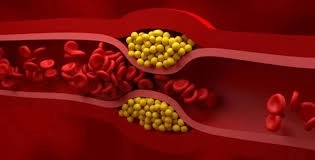
Triglycerides and Cholesterol When Should You Be Concerned With Dr. Shaimaa El-Sayed
Published on: 2025-06-18 | Written by: Dr. Shimaa El-Sayed, Senior Consultant of General Internal Medicine and Kidney Diseases
Triglycerides and cholesterol play a vital role in heart and vascular health, but high levels can be a serious warning sign that requires urgent medical attention. Dr. Shaimaa El-Sayed, Consultant in Internal Medicine and Kidney Diseases, presents this simplified guide to understanding the associated risks and how to prevent or treat them effectively.
What Are Triglycerides and Cholesterol?
-
Triglycerides: A type of fat stored in the body and used for energy.
-
Cholesterol: A waxy substance used to build cells. It’s divided into:
-
LDL (bad cholesterol)
-
HDL (good cholesterol)
-
Common Causes of Elevated Levels
-
Diets rich in fats and sugars
-
Lack of physical activity
-
Obesity and overweight
-
Chronic conditions such as diabetes or thyroid disorders
-
Genetic predisposition
Dr. Shaimaa El-Sayed emphasizes the importance of regular testing to detect these factors early.
When Should You Be Concerned?
-
Triglycerides exceed 150 mg/dL
-
LDL cholesterol exceeds 130 mg/dL
-
HDL cholesterol is below 40 mg/dL in men and 50 mg/dL in women
-
Family history of heart or kidney diseases
In these cases, Dr. Shaimaa El-Sayed warns that ignoring symptoms or test results can lead to complications such as strokes, atherosclerosis, or even kidney failure.
Diagnostic Methods
-
Lipid profile blood test
-
Liver and kidney function tests
-
ECG or echocardiography when necessary
Dr. Shaimaa El-Sayed recommends undergoing these tests at least once a year.
Treatment and Management
-
Following a healthy, low-fat diet
-
Regular physical activity
-
Taking cholesterol-lowering medications such as statins, if needed
-
Losing weight and avoiding smoking and alcohol
Dr. Shaimaa El-Sayed stresses that treatment should always be monitored by a physician to evaluate progress and avoid side effects.
When to See a Doctor
-
If you experience symptoms such as chest pain, shortness of breath, or dizziness
-
If you have a family history of cardiovascular diseases
-
After receiving abnormal lipid test results
In these situations, it's essential to schedule a consultation with Dr. Shaimaa El-Sayed promptly to initiate a tailored treatment plan.

